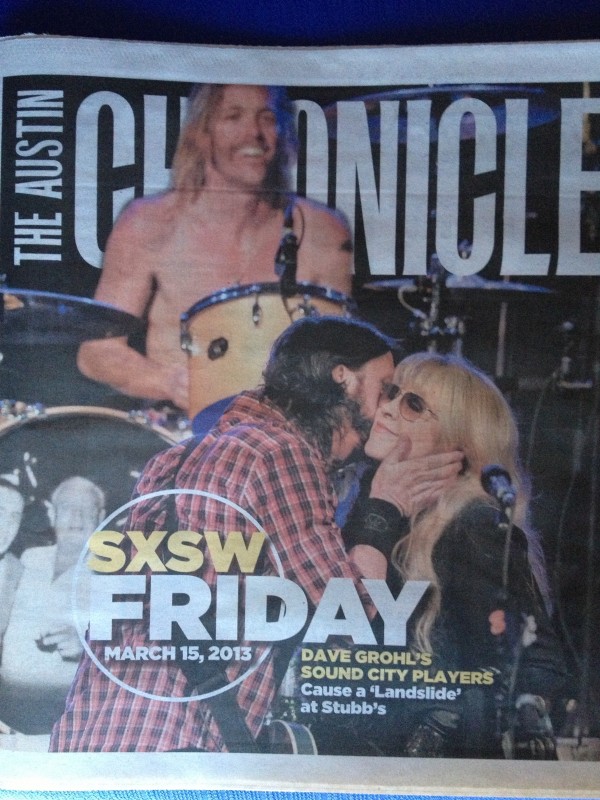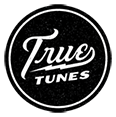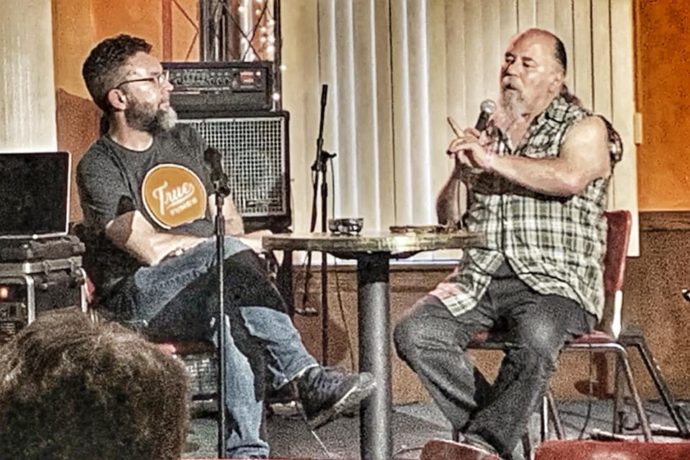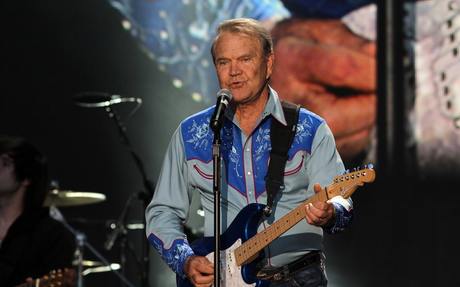Sound City Versus SXSW Interactive

Image from The Austin Chronicle: www.theaustinchronicle.com
The first few days of South By Southwest 2013 felt like a beat-down by the ironically nerdy bullies of the tech world upon the the down-in-the-mouth music culture. “Your music should be free!” they seemed to shriek in near unison. “Now give us your lunch-money too!” The mockery of any attempts to monetize music has never been louder. The tech world really seems to be winning this war, but why were they so defensive? Maybe they suspect that the era of free music and expensive software and gadgets is about to take a turn.
Or maybe they heard that Music’s protective big brother was going to be pulling into the parking lot after school and he had some ass-kicking in mind. For years the mantra of the Interactive portion of SXSW has provided a nearly unanimous call for the end of labels and the storming of the creative world’s Bastille. This year, however, Dave Grohl fought back – not with an argument, but with a spark of youthful passion and indisputable evidence that despite the obvious excesses and abuses of the Big Music era, there was something important about the craft of rock and roll that is being lost.
One of the biggest buzzes of the year was Grohl’s Sound City, a documentary film that came with a corresponding album and all-star concert. In it Grohl studies and celebrates the run-down, dumpy Los Angeles recording studio that brought some of the most important albums of the last forty years into the world – including the album that literally changed his life; Nirvana’s Nevermind. When the studio closed in 2011 Grohl purchased some of its gear, including a Neve 8028 analog mixing desk. While the history is fascinating, that old Neve serves as the perfect metaphor of an era of music that is probably dead forever. (I got to record the first real Wayside album on a ‘69 Neve and it was amazing indeed.)
One of the other attempted buzzes of SXSW was how cool it now is to get your band sponsored by a mega corporation selling junk food, instead of a record label.
While aspiring, and often terrible young artists can now create inexpensive (read: cheap) music on their laptops, the greats of old slaved over complicated, heavy and mysterious equipment in order to capture their vision with the highest possible fidelity to its original sound. John Fogerty, Fleetwood Mac, Rick Springfield, Barry Manilow, Tom Petty, Neil Young, Nine Inch Nails, Metallica and many others made music in Sound City. While Grohl celebrates this slice of American history, he also implicates the way technology has cheapened music. SXSW provides an ironic and appropriate environment for this conversation as many of the brilliant technicians who have eviscerated modern music are here celebrating their latest advances.
This is a complicated issue. On one hand it’s great that the lowered cost of recording has opened the process up to anyone with a creative urge. Digital distribution has eliminated the stranglehold the major labels maintained on music access to the masses. At SXSW those labels are frequently pilloried and misrepresented by the next generation of creatives who came of age in the era of the MP3. Corporate sponsorships that would have been considered inexcusable to the rockers of old are now frighteningly commonplace. There’s a massive (obnoxious) Doritos Stage in downtown Austin if you need a painful example. While many of the new members of this scene are thrilled to crow about the death of the labels, they don’t seem to realize that Big Tech has become the New Boss. Do we really want Pepsi, Doritos, Monster Energy Drinks and Chevy to be the arbiters of our music? Allowing them to use a song or even to sponsor a tour is one thing, but are they the ones we want to become our musical filters? Do they care about anything good, true or beautiful or do they just want music that will sell more stuff?
Music is what drives this, not Big Tech or Doritos. No one ever bought an iPod for anything other than the content it could deliver. Spotify, Rdio, Shazam, iTunes and the rest are nothing if not for the public’s love of music. Many of the folks behind those platforms realize that, but some seem not to understand that the main reason most of us pay for high-bandwidth internet connections is because of music or film. It seems clear that all of the money that has gone out of the music industry over the last decade has gone straight into the pockets of bandwidth providers, device manufacturers and software developers. Of course those people believe all music should be free – it’s what makes their products and services worth buying!
The fact that digital services such as iTunes and Spotify do not feature things like liner notes and lyrics shows just how much respect some in those systems have for the intrinsic value of the music that is their lifeblood. In many cases these omissions are due to old-school publishers having been unwilling to license the new providers early on. Now that they are it has become a hard-sell. Does anyone even care about the lyrics? When I was a kid listening to my favorite albums, I would pour over every printed lyric in the liner notes. I read them, and the detailed recording and songwriting credits, and even the “Thank Yous” voraciously. Now all we see is a tiny square of “album art” and the name of the song. Don’t get me wrong – I love that I can now introduce you to a new artist with the ease of a click – but we’ve lost something important that I hope we can recover. I got to speak to Chuck D of Public Enemy yesterday. His music has always been about lyrics that matter. “If people really didn’t care about lyrics,” he said, “the top 10 songs would all be instrumentals!” It’s encouraging to me that Chuck, who has been involved as an advocate in the African American community for years on issues related to addiction prevention and recovery, literacy and violence prevention, is actively engaged in protecting the power of music to move, shape and influence culture over simply selling a product.
As a fan of music that matters, I hope Grohl’s valentine to analog recording has a subconscious effect on the smartest people in the room; those tech bullies. These are the people who can fix things. There is nothing keeping us from finally finishing this new musical revolution with tools that allow music to sound good once again and that allow for lyrics and credits to be included in the experience, without sacrificing portability and convenience. My heart breaks for the generation that has grown up with MP3s and has no idea how a kick drum, an acoustic guitar or the human voice can really sound. Those of us who know need to be pulling the curtain back and inspiring our kids to honor the music that deserves honor, by elevating it beyond something they play in the background while playing Call of Duty. People of faith who believe that music has an intrinsic spiritual value should be fully engaged with this discussion and not satisfied to surrender it to Doritos or anyone else. Years of utilitarianism by ministers who have seen music as simply an “Evangelism Delivery Device” are doing the same thing that Frito-Lay is, in a way.
Watch this space for more coverage of SXSW 2013, including new musical discoveries and bits from my conversations with Chuck D and Billy Corgan. In fact, you’d better subscribe so you don’t miss anything.



